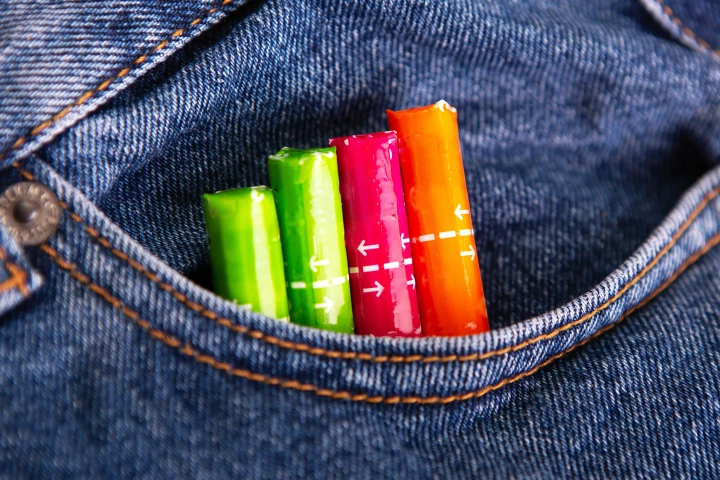toxic
-
If you have an aversion to the bitterness of foods like cabbage or broccoli, you might be a "super-taster," carrying a specific genetic code that dials up taste sensitivity. It may also put you at higher risk of kidney disease and bipolar disorder.
-
Toxic ‘forever chemicals’ are increasingly showing up in the environment, our food and drinking water, and our bodies. But we might have a new weapon: scientists have identified a bacterium that can eat these chemicals, as well as their byproducts.
-
Scientists have discovered the largest known protein in biology. Given the fun name of PKZILLA-1, the protein was found in algae cells and helps them make toxins that are responsible for mass killings of fish.
-
Scientists have developed a new method for removing toxic “forever chemicals” from wastewater. 3D-printed ceramic lattices can remove up to 75% of PFAS from polluted water in three hours – and the structures get better at their job as they’re reused.
-
Scientists in Japan have developed a new method for breaking down toxic “forever chemicals” quickly and at room temperature. The technique broke down 100% of certain types of these pollutants overnight, recovering some useful components for reuse.
-
The first study to measure the concentration of metals in tampons has found that several brands contain concerning amounts of lead, arsenic and cadmium. More research is needed to determine whether the presence of these toxic metals poses a health risk.
-
A study has found that sex toys are an overlooked source of microplastics and phthalates, both of which can be toxic to humans. The findings highlight the need for greater regulation of the sex toy industry to ensure consumer safety.
-
Researchers have discovered a previously unknown pathological cellular mechanism underpinning heart failure, which currently has no cure, and identified a drug that can reverse the damaging malfunction, opening the door to a novel treatment.
-
A European study found that 90% of so-called eco-friendly paper straws contain “forever chemicals,” compounds that barely break down and can accumulate in our bodies, leading to health problems. The findings are consistent with previous US studies.
-
While “don’t mess with Texas” may have originated as a littering campaign catchphrase, scientists from the southern state have aimed that mantra at waterborne bacteria, creating a drinking cup that kills pathogens that cross its electric field.
-
The route to discovering remarkable medicines has often been a fortuitous one. Now, researchers are hoping that another surprise find, once again linked to bacteria, can be harnessed for its medical potential and even be used to destroy cancer cells.
-
Scientists have developed a new potential treatment for cancer that works in a similar way to the COVID-19 vaccines. The technique involves delivering mRNA molecules to cancer cells and tricking them into producing toxic proteins that kill the tumors.
Load More











